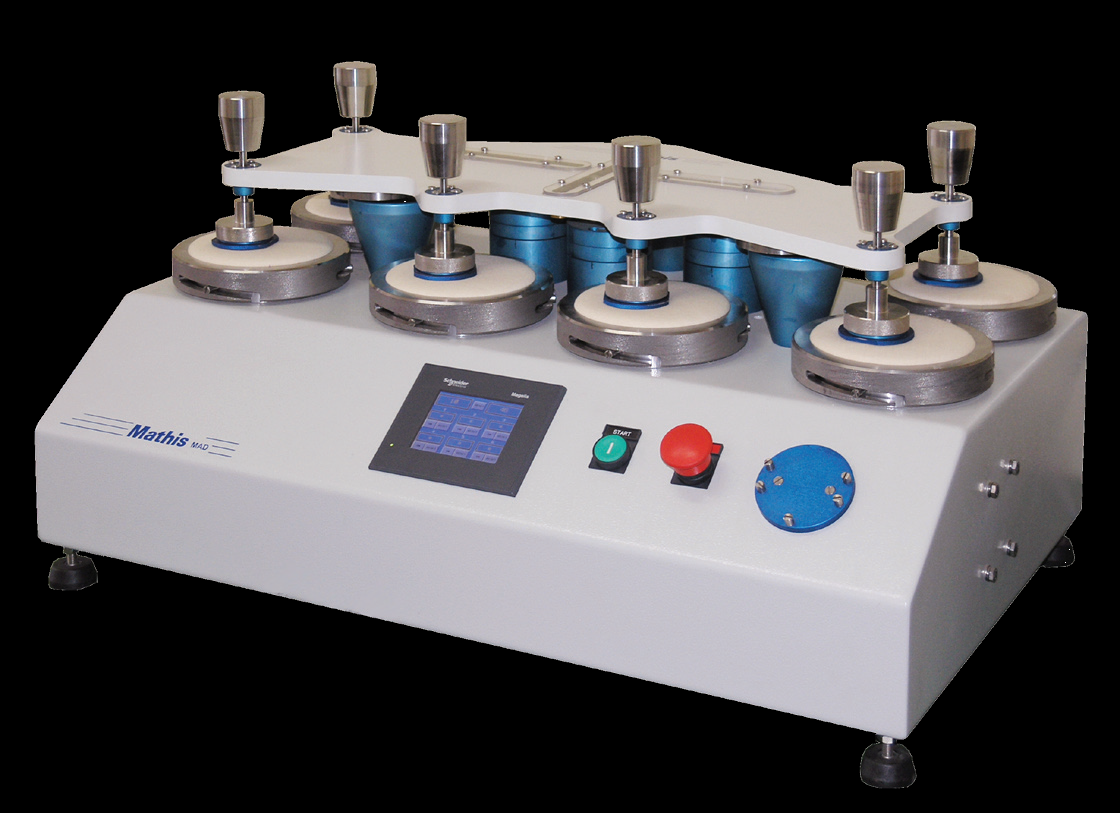GB T 21196.2 Determination of abrasion resistance Martindale method
The GB T 21196.2 standard specifies the procedure for determining the abrasion resistance of fabrics using the Martindale method. This testing protocol is widely recognized in China and internationally as a reliable means to assess how textiles withstand repeated friction, simulating real-world wear conditions. The Martindale method involves subjecting test specimens to a controlled abrasion process with an abrasive brush until it reaches a predefined level of damage or a set number of cycles.
The standard is particularly relevant for weaved and knitted fabrics used in various industries such as apparel, automotive interiors, furniture upholstery, and industrial textiles. Understanding the abrasion resistance of materials ensures that products meet durability expectations without compromising on quality.
Key aspects of this testing include:
- Test Specimen Preparation: Samples are cut to standardized dimensions ensuring consistency in measurement results.
- Abrasive Brush: The Martindale machine uses a rotating circular brush that simulates the rubbing action encountered during wear. Different types of brushes can be used depending on the fabric type.
- Cycles and Load: The number of cycles and load applied are critical parameters affecting test results, which must be specified in accordance with the standard.
- Damage Assessment: The extent of damage to the specimen is visually inspected and quantified using standardized criteria. This includes measuring changes in fabric thickness or weight loss.
The Martindale method is not only applicable for determining abrasion resistance but also helps in understanding pilling behavior, a related quality issue where fibers become loose and form pills on the surface of fabrics. Understanding both aspects ensures that textiles maintain their appearance and functionality over time.
GB T 21196.2 provides detailed guidance on preparing specimens, selecting appropriate abrasion conditions, and interpreting results. Compliance with this standard is essential for manufacturers aiming to produce high-quality products that meet domestic and international market demands.
Scope and Methodology
The scope of GB T 21196.2 covers the determination of abrasion resistance using the Martindale method, which is applicable for various woven and knitted fabrics used in different industries. This includes:
- Apparel textiles: Jackets, shirts, pants, etc.
- Automotive upholstery: Seats, door panels, headliners, etc.
- Furniture upholstery: Sofas, chairs, armchairs, etc.
- Industrial textiles: Tarpaulins, conveyor belts, tents, etc.
The methodology involves placing the fabric sample between the Martindale machine's upper and lower plates. The brush, which is mounted on the rotating plate, rubs against the fabric specimen under specified conditions of load, number of cycles, and type of abrasive material. The testing continues until a predefined level of damage or a set number of cycles are reached.
For accurate results, it's crucial to follow the standard's guidelines closely regarding specimen preparation, machine setup, and observation parameters. Compliance ensures that test results are reliable and reproducible across different laboratories.
Eurolab Advantages
EuroLab prides itself on delivering accurate, consistent, and compliant abrasion resistance tests in accordance with GB T 21196.2. Our advantages include:
- Expertise: Our team of experienced professionals ensures that every test is conducted meticulously following international standards.
- State-of-the-Art Equipment: We use the latest Martindale machines to perform tests, ensuring precision and reliability.
- Comprehensive Reporting: Detailed reports are provided with each test, offering insights into not only abrasion resistance but also pilling behavior.
- Custom Solutions: EuroLab offers tailored testing services based on customer requirements, accommodating special conditions or specimen types.
We have successfully completed numerous tests for clients in the textile industry, ensuring that their products meet stringent quality and regulatory standards. Our commitment to excellence has earned us a reputation as a leading laboratory provider in this field.





